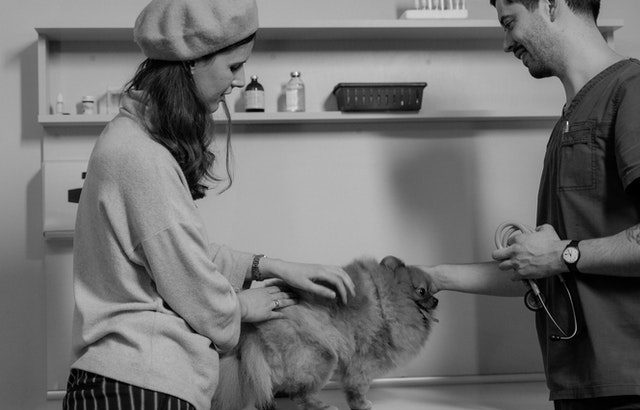Veterinary Surgeons: An Introduction to This Veterinary Profession
Veterinary surgeons play a critical role in the health and wellness of animals. As you may have guessed, they are responsible for performing surgical procedures on animals. Some of these surgical procedures are minor, whereas others are more complex. Regardless, if an animal is suffering from a disease, injury or other medical condition that requires surgery, a veterinary surgeon will likely step up to the plate. For a better understanding of this profession and what it entitles, keep reading.
Overview of Veterinary Surgeons
A veterinary surgeon is a licensed veterinary who performs surgeries on animals. Animals often require surgery just like us humans. Maybe an animal is suffering from a broken bone, or perhaps an animal has an underlying disease. If an animal requires surgery, a veterinary surgeon may offer treatment by performing a surgical procedure on them.
The surgical procedures performed by veterinary surgeons typically fall under one of three categories: orthopedics, soft tissue and neurology. Orthopedic surgeries encompass the bones and joints. Soft tissue surgeries, on the other hand, encompass the skin, muscles and other soft tissues. And neurological surgeries encompass the nerves.
What Types of Animals Do Veterinary Surgeons See?
It shouldn’t come as a surprise to learn that veterinary surgeons often see companion animals. Companion animals are pets. They include dogs, cats, guinea pigs, hamsters and other common household pets. If an owner’s companion animal requires surgery, he or she may contact a veterinary surgeon. Alternatively, a traditional veterinarian may refer the owner to a veterinary surgeon.
In addition to companion animals, many veterinary surgeons see farm animals. Farm animals can suffer from injuries and diseases as well, and some of these conditions may require surgery for treatment. Farm animals can include cows, chickens, sheep and goats. Veterinary surgeons may visit an owner’s farm to perform the necessary surgical procedure on his or her farm animal.
Veterinary Surgeons vs Veterinarians: What’s the Difference?
Many people assume that veterinary surgeons are the same as veterinarians. Both veterinary surgeons and veterinarians are, in fact, licensed veterinarians. To work in either of these professions, you’ll need to obtain a license in your respective state to practice as a veterinarian.
Traditional veterinarians often perform surgical procedures as well. With that said, veterinary surgeons specialize in surgery, whereas traditional veterinarians do not. Veterinary surgeons have more training and experience performing surgical procedures on animals than their counterparts. For minor surgeries, a traditional veterinary may perform. Major and complex surgeries, conversely, often require the experience of a veterinary surgeon. Veterinary surgeons specialize in surgery, which is how they differ from traditional veterinarians.

Is a Veterinary Surgeon the Right Career for You?
You might be wondering whether or not a veterinary surgeon is the right career choice for you. There’s no denying the fact that it’s a rewarding career choice. As a veterinary surgeon, you’ll play a direct role in treating serious, potentially life-threatening medical conditions in animals. Serious medical conditions may require surgery. Only after the sick or injured animal has undergone surgery will their condition improve.
Working as a veterinary surgeon requires excellent hand-eye coordination. You’ll have to carefully make incisions, and you’ll have to navigate the tissues under the animal’s skin. No two surgical procedures. But nearly all surgical procedures require excellent hand-eye coordination.
You may also have to work long hours as a veterinary surgeon. Some surgical procedures can take many hours to complete. Assuming you have multiple surgeries scheduled for the day, you may have to work late to complete them all. Traditional veterinarians may work long hours as well, but veterinary surgeons have a more taxing schedule than typically involves longer workdays.
How to Become a Veterinary Surgeon
The path to becoming a veterinary surgeon begins with a Doctorate of Veterinary Medicine (DVM). Veterinary surgeons are still licensed veterinarians; they simply specialize in surgery. Obtaining a license to practice as a veterinarian, of course, requires the completion of a DVM program. There are several dozen colleges in the United States that offer a DVM program. A DVM program consists of four years of education covering a wide range of topics related to veterinary medicine.
You’ll typically need to work as a traditional veterinarian before you can become a veterinary surgeon. Some veterinary surgeons work for three to six years as a traditional veterinarian before they embark on this specialized career path. While working as a traditional veterinarian, you’ll gain a better understanding of how to diagnose and treat medical conditions in animals. Additionally, you may even perform minor surgeries on animals. Working as a traditional veterinarian will prepare you to become a veterinary surgeon.
Some veterinary surgeons are board certified. The American Veterinary Medical Association (AVMA) has two board-certified specialties for veterinary surgery: small animal surgery and large animal surgery. You don’t have to become board certified to work as a veterinary surgeon. Board Certification is simply an optional form of accreditation that make you stand out while attracting more clients.

